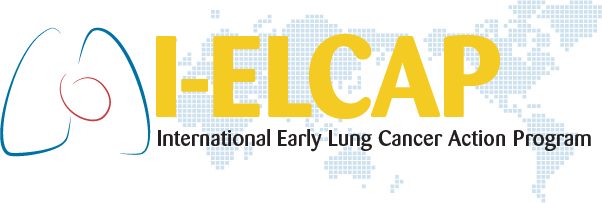About Us
Our Mission
To achieve early diagnosis, treatment, and ultimate cure of lung cancer through the rapid dissemination and advancement of research among a diversified, collaborative network.

History of I-ELCAP
Mount Sinai Health System’s I-ELCAP is an international, collaborative group consisting of experts on lung cancer and related issues from around the world.
In 1991, a group of physicians from Cornell University Medical Center (now Weill Medical College of Cornell University) joined forces with specialists from other institutions to find a common research goal. They found this goal in early lung cancer detection, and the promise offered by helical CT imaging. In 1992, the Early Lung Cancer Action Program (ELCAP) was born.
By 1999, the I-ELCAP had screened over 1000 high risk asymptomatic participants. The results indicated that over 80% of the lung cancer diagnoses were of clinical Stage I. The I-ELCAP findings had been published in the Lancet, which inspired further research efforts on CT screening for lung cancer throughout the world, in the form of screening research studies at 12 institutions throughout New York State, called the NY-ELCAP. Simultaneously, in 1999, ELCAP started to host international conferences, which led to the development of valuable protocols. This allowed for international collaboration and data pooling throughout the world.
In 2006, I-ELCAP’s findings were published in the New England Journal of Medicine. This publication was able to show that:
- lung cancers diagnosed under screening were typically small, including small cell carcinomas, and
- the estimated cure rate of patients whose lung cancer was diagnosed under screening.
After long-term follow-up of 31,456 asymptomatic participants, 484 of whom had lung cancer diagnosed under CT screening of which 414 (86%) had clinical Stage I disease, the estimated overall cure rate for the 484 patients diagnosed under CT screening was 80% (95% CI: 74% - 85%). With these and other publications, I-ELCAP has remained at the forefront of screening research and is often the first to call attention to important new topics. Such topics included, but are not limited to; nodule growth rate assessment, identification of different types of nodules (solid, part-solid, and nonsolid), differing pathologic findings and survival rates, identification of emphysema, coronary artery calcifications, mediastinal masses, and the importance of including smoking cessation into the screening program.
In 2010, The I-ELCAP was relocated to Mount Sinai Health System. This transition provided I-ELCAP with access to a larger research population and helped fuel the expansion throughout New York City, as well as internationally.
As they continue to detect and study early stage lung cancers, early stage treatment options became apparent. Since 2016, IELCART (Initiative for Early Lung Cancer Research on Treatment), began tracking the long-term quality of life for various early stage lung cancer treatment.
